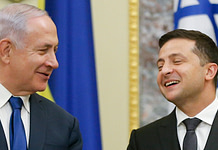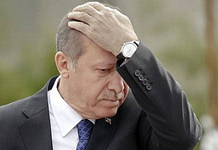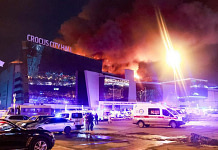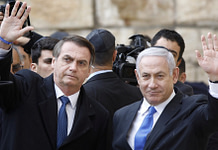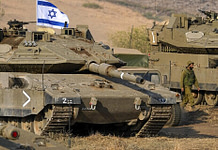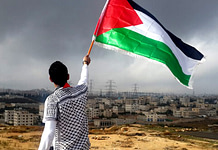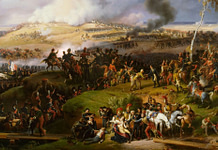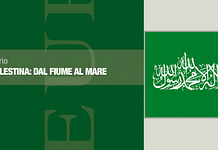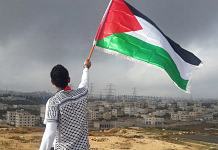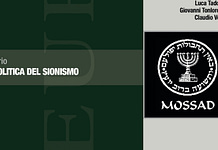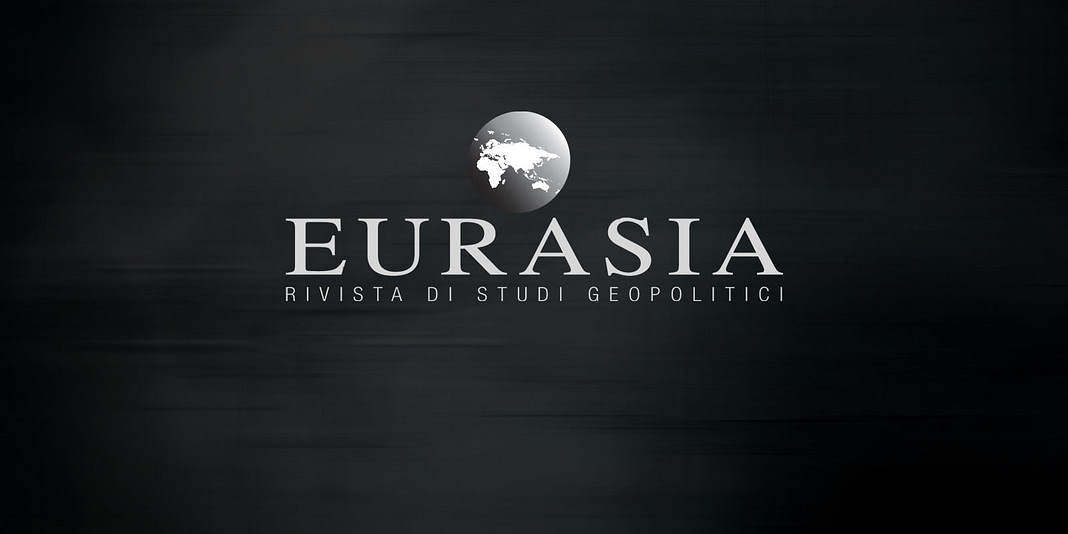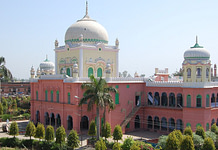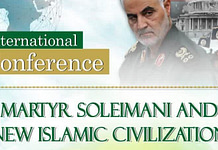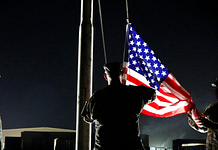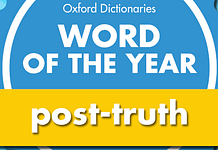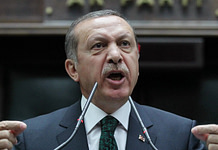During the past few years, especially in 2009, there has been a lot of talking regarding a possible repatriation of the African Development Bank (AfDB) to its ancient headquarters in Abidjan, but arrangements needed time. Now, after a decade-long exile in Tunis forced by the Ivorian civil war of 2002, the AfDB is ready to go back home. The move appears to be costly – $165 million according to Nicholas Kotch, Africa editor of Business Day newspaper and BDlive – and should be finalized in November 2014, just in time to celebrate the bank’s 50th birthday.
No economic side effect should hit Tunisia and therefore worsen the already troublesome condition of the country where, last July, Islamist activists allegedly killed Mohamed Brahmi – former leader of the socialist party People’s Movement. Indeed, over the period 2014-2015, the bank will maintain programs there worth $2.1 billion in the form of grants.
Quite more interesting look the repercussions of such a move on Côte d’Ivoire. As specified in the AfDB’s 2013-2017 Country Strategy Paper issued last October, mainly three economic impacts are associated with the bank’s return to Abidjan: direct impact, indirect impact and induced effects. Direct impact implies job creation, salaries’ payment, and goods and services’ procurement from local suppliers to the benefit of the regional industry. Indirect impact means new income generation in adjacent sectors triggered by the initial contractors, obviously in need of supplies from other suppliers. Finally, induced effects involve wage earners spending part of their pay in local firms to purchase various goods and services. Such a process is known as multiplier effect: one expenditure generates other expenditures.
Recent History
The aim of this article is to provide a brief study on Côte d’Ivoire , encompassing economic and political trends. We consider both the actual post-conflict scenario and the role of AfDB in supporting the former French colony. Hereby, we want to retrace and depict the country’s developments, in the light of the general growth tendency that Africa as a whole has been experiencing since 1995. In fact, through a working paper the World Bank issued in February 2008 (Is Africa’s Economy at a Turning Point?), the authors find a trend break in the mid-1990s, identifying a growth acceleration in the continent, due to favourable terms of trade, greater aid, and better policy.
Under Félix Houphouët-Boigny – president from 1960 to 1993 and longest-serving leader in Africa’s history –, the Côte d’Ivoire prospered economically. Such a success, the so-called “Ivorian miracle”, derived from sound planning, strong ties with France (Françafrique policy), and effective exploitation of coffee and cocoa industries, which were eventually afflicted in the 80s, as a sharp drop in the price of those products occurred.
When “Papa Houphouët” died in 1993, conditions in the Côte d’Ivoire started to fall apart: coups d’état, currency devaluation, economic recession, and civil war.
Fundamental, in this respect, the 1999 dismantlement of the “Caisse de Stabilisation” (1960). The underlying mechanism, dating back to French colonial times, fixed the price of cocoa and other agricultural products providing a shield for farmers against prices fluctuation in the markets. Following the liberalization process, strongly supported by the West, which perceived great financial returns for the Ivorian people, many multinational companies settled in the country. Nonetheless, the new-engendered investment flow ultimately refuelled Côte d’Ivoire ’s economy at the expenses of rural communities.
Côte d’Ivoire: economy at a Glance
Table 1. Quantitative Analysis. World Bank, Development Indicators. *= 2011.
ECONOMIC INDICATORS
GDP (current US$)
1995: 11,000 mln
2012: 24,680 mln
GDP per capita (current US$)
1995: 774
2012: 1,244
GDP growth (annual %)
1995: 7
2012: 9
GNI (current US$)
1995: 10,013 mln
2012: 23,683 mln
GNI per capita, PPP (current international $)
1995: 1,350
2012: 1,920
Share of agriculture (% of GDP)
1995: 25
2012: 30
Share of industry (% of GDP)
1995: 21
2012: 30*
Share of manufacturing (% of GDP)
1995: 15
2012: 21*
Share of services (% of GDP)
1995: 54
2012: 48
Imports (% of GDP)
1995: 34
2012: 41*
Exports (% of GDP)
1995: 42
2012: 44*
External debt (% of GNI)
1995: 189
2012: 42
Savings (% of GDP)
1995: 12
2012: 9
FDI (% of GDP)
1995: 2
2012: 2
Reserves (current US$)
1995: 0,53 bn
2012: 4,32 bn*
IBRD loans and IDA credits (current US$)
1995: 2,386 mln
2012: 118 mln
SOCIAL INDICATORS
Population
1995: 14,217,430
2012: 19,839,750
Urban population (% of tot.)
1995: 41
2012: 52
Literacy (% pop. 15+)
1995:46 (2000)
2012: 57*
Employment (% pop. 15+)
1995: 64
2012: 65
HDI
1995: 0.360 (2000)
2012: 0.432
Life expectancy at birth (years)
1995: 50
2012: 50*
Death rate (per 1000 people)
1995: 15
2012: 15*
HIV infections (% of pop. 15-49)
1995: 7
2012: 3
Female labour force participation rate (% 15-64)
1995: 47
2012: 52
Telephone lines
1995: 115,790
2012: 267,997
Internet users (per 100 people)
1995: 0.02
2012: 2
Côte d’Ivoire is a low-middle income country. It experienced two civil wars in the past decade (2002 and 2010) that hampered the economic uptrend it was going through. In spite of that, it is still the largest market-based economy in the West African Economic and Monetary Union (30% of WAEMU GDP) and its GDP has more than doubled from 1995 to 2012. It is the major cocoa producer in the world and great exporter of coffee and palm oil, as well as an important oil and gas supplier for landlocked countries like Mali and Burkina. In addition, it has significant offshore oil and natural gas reserves, whose exploration is boosting government revenues, although some wells were closed for works last year. Moreover, increasing government spending (23% of GDP in 2012) in education and infrastructure resulted in the expansion of manufacturing industries.
The current liberalist economic regime is promoting both private initiative and foreign trade, since foreign investment is critical to the Ivoirian economy. At the Opening Ceremony of the fourth “Invest in Côte d’Ivoire Forum” – titled “Private sector: A lever for successful regional integration” – held in Abidjan on January 29, AfDB’s president Donald Kaberuka emphasised the importance of strengthening the bank’s partnership with private investors – granting around $2 billion a year – while working closely with the Ivorian government. Furthermore, in its 2013 Portfolio Review, AfDB states that “Côte d’Ivoire has reached the completion point under the Heavily Indebted Poor Countries Initiative, which strengthens the country’s credibility in the eyes of the world and paves the way not only for the resumption of Official Development Assistance but also for the intensification of domestic and international direct investment”. Inter alia, the bank substantially contributed in achieving that target through arrears-clearance procedures leading to remarkable attainments in terms of external debt to GNI ratio: 42% in 2012 from 57% in 2011.
The recent steep GDP growth of 9%, after a -5% drawback in 2011, is largely due to infrastructure projects and investments. Instead, the current account deficit (-3.3% of GDP) is to be searched in increased imports, resulting from the economic recovery, as well as decreased exports of agricultural products, stemming from the vegetative rest period.
As regards infrastructure, many insiders accuse AfDB of focusing primarily on gigantic projects (e.g. third bridge in Abidjan and second container terminal at Abidjan Port) paying little attention to the poor. Generally, the latter are excluded from planning and implementation of those lucrative initiatives and, consequently, derive scarce direct benefit from them (regional disparities). On the other hand, that being understood, the bank created the Independent Review Mechanism (2004), which allow people adversely affected by a bank’s project to file a complaint before the very same institution. Notwithstanding the effort made by the bank in trying to meet pauperized people’s requests, filing a complaint through that mechanism implies no legal obligation on the part of government and firms to comply with individual concerns.
About its strategic position, “Côte d’Ivoire represents an area of trading activities and a major transit corridor for the sub-region because of its two ports in Abidjan and San Pedro. It is at the centre of a power interconnection grid linking Ghana to Togo and Benin, [and] to Burkina and soon to Mali and the Mano River Union Countries (Liberia, Guinea and Sierra Leone)”, AfDB reports.
Last point, the overall-satisfying growth trend is spreading confidence within the economy and among investors. In this matter, Doing Business 2014 data – elaborated by the World Bank Group – disclose notable accomplishments. The comprehensive “Ease of Doing Business” ranking reveals Côte d’Ivoire moved from 173rd in 2013 up to 167th this year. Other three rankings by topic deserve to be mentioned. As for starting a business, it climbed the rank up to 115th, from 179th last year; enforcing contracts, 88th from 127th; and registering property, 127th from 152nd. Thus, this shows to what extent the business environment is gradually adjusting to the apparently restored situation.
Socio-political context
As regards security and defence, since 2004 the United Nations has maintained UNOCI (United Nations Operation in Côte d’Ivoire): peacekeeping mission set up to protect civilians and support the government in disarmament and reengagement processes. This allowed the population to partially recover from the internal conflict and helped monitor illegal activities and militia movements across borders. It also involved strict collaboration with the executive in promoting and protecting human rights as well as condemning abuses against women and children. Lastly, it led the Ivorian authorities towards effective reestablishment of the State administration over its territory. As security improved, supply of water and electricity were restored in crisis-affected areas. Yet again, only 28% of households is actually connected to the grid.
There is now a network of more than 13.000 km paved roads and regular air service but the overall infrastructure deteriorated during conflicts. Particularly, farm-to-market roads received little to no maintenance and that prevented profitable production areas from reaching the markets. Moreover, telecommunications are well developed and several companies provide mobile phone services. Even though internet access is available for few people, all urban locations are equipped with adequate facilities.
In December 2011, peaceful and fair legislative elections helped boosting confidence and positiveness. In April last year, regional and municipal elections were held too, although not without clashes and attacks. According to the Freedom House’s reports on political liberties, Côte d’Ivoire was promoted from “not free” to “partly free” status in 2013, scoring 5 points in the relative rating. This is due to a new parliament’s inauguration, adoption of laws on corruption and transparency, reopening of opposition newspapers, public universities and courts, as well as attempts to brake military abuses.
Nonetheless, the rate of corruption stays high, as reported by the Transparency International’s Corruption Perception Index, which ranks Côte d’Ivoire 136th out of 175 countries with a score of 27/100 (2013 data). Even worse is the poverty plight. Actually, the UN Human Development Index displays disquieting figures: ranked 168th out of 187 countries in 2012, with nearly 50% of the population estimated to live below the poverty line.
Eventually, environmental implications should not to be underestimated too. Bad agricultural practises along with civil wars are among the first causes of habitat degradation, like deforestation and coastal erosion. The former issue being dramatically severe: from 12 million hectares in 1960, the Ivorian forest counted only 2.802 million in 2007, equivalent to a roughly 75% loss.
Future Prospects
On the political front, one of the major challenges is to consolidate peace and social cohesion by reinforcing dialogue and improving security within the borders. Promoting and strengthening democracy, as basic need for the future, means calling for national reconciliation between “old rivalries” – Muslims in the North and Christians in the South. To this purpose, the actual president Alassane Ouattara established, in 2011, the Dialogue, Truth and Reconciliation Commission. Yet, since Ivorian Popular Front’s members – opponents of the present leader and loyal to the detained Laurent Gbagbo – refuse to repent for crimes being committed against their fellow citizens, there has been no concrete development since then. Again, security is fragile and must continue to normalise, even in port and maritime zones (consider the criticality of a shipping sector conveying 90% of Côte d’Ivoire’s total trade).
However, weapons proliferation is still a major problem given that, by the end of 2012, more than 64,000 ex-combatants were armed. Under the Post-Conflict Assistance Project, approximately 18,000 of those soldiers took part in reintegration activities while many rural roads and civil registry offices were rehabilitated or constructed.
Additionally, Côte d’Ivoire’s national development strategy envisaged the establishment of a new microfinance bank in 2010 (MicroCred Cote d’Ivoire-MCI), in order to facilitate financial access for Micro, Small and Medium Enterprises. This is due to AfDB’s approved investments in favour of MSMEs, thereby fostering economic growth and development in the microfinance industry. Implementation of this kind of projects is expected to result in sustained job creation by 2015.
Another essential component – production diversification – is extremely important for a sustainable future. Since the early 1990s, AfDB finances projects designed to increase major crops’ productivity and diversify the agricultural production. They contributed to improving food security and reducing poverty in rural areas. For instance, albeit considered a small-scale metals’ producer, Côte d’Ivoire could strengthen the mining sector as a way to diversify its cocoa-based economy.
In conclusion, there are sufficient natural resources and good infrastructure to recover quickly from the recent socio-political unrest. Still, future economic success is dependent on peace and political stability. Even the likes of Kaberuka said that “Africa has a long way to go to achieve its transformation [and] we must make a clear distinction between necessary economic growth and economic transformation, which is the strategic goal”. This holds true for Côte d’Ivoire too; after a disastrous decade, its return to equilibrium is far from complete.
Coming back to the starting topic, which is the AfDB relocation to Abidjan, “Rest assured, we do fully understand how complex and delicate the exercise is. There will neither be undue precipitation nor unnecessary delays”, is how Kaberuka tried to instil confidence at the 2013 Annual Meeting of the bank. In the end, was it too early for the bank to move back? Was that a hurried decision pushed by threatening Tunisian circumstances merged with the belief the bank should be south of the Sahara? Would not the bank have been rather better off considering extra solutions or destinations? One thing is certain: most of the staff recruited in Tunis (around 80%) still have to discover whether Côte d’Ivoire is a safe place to live.
Questo articolo è coperto da ©Copyright, per cui ne è vietata la riproduzione parziale o integrale. Per maggiori informazioni sull'informativa in relazione al diritto d'autore del sito visita Questa pagina.


